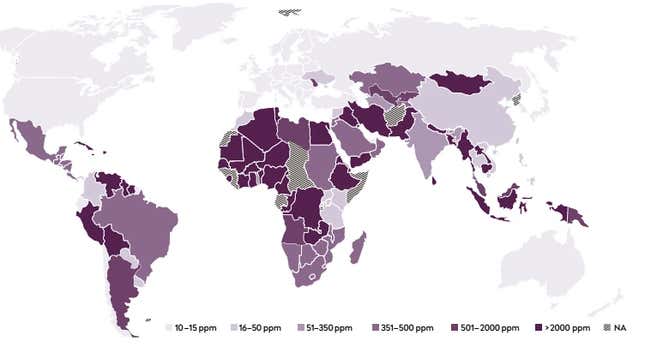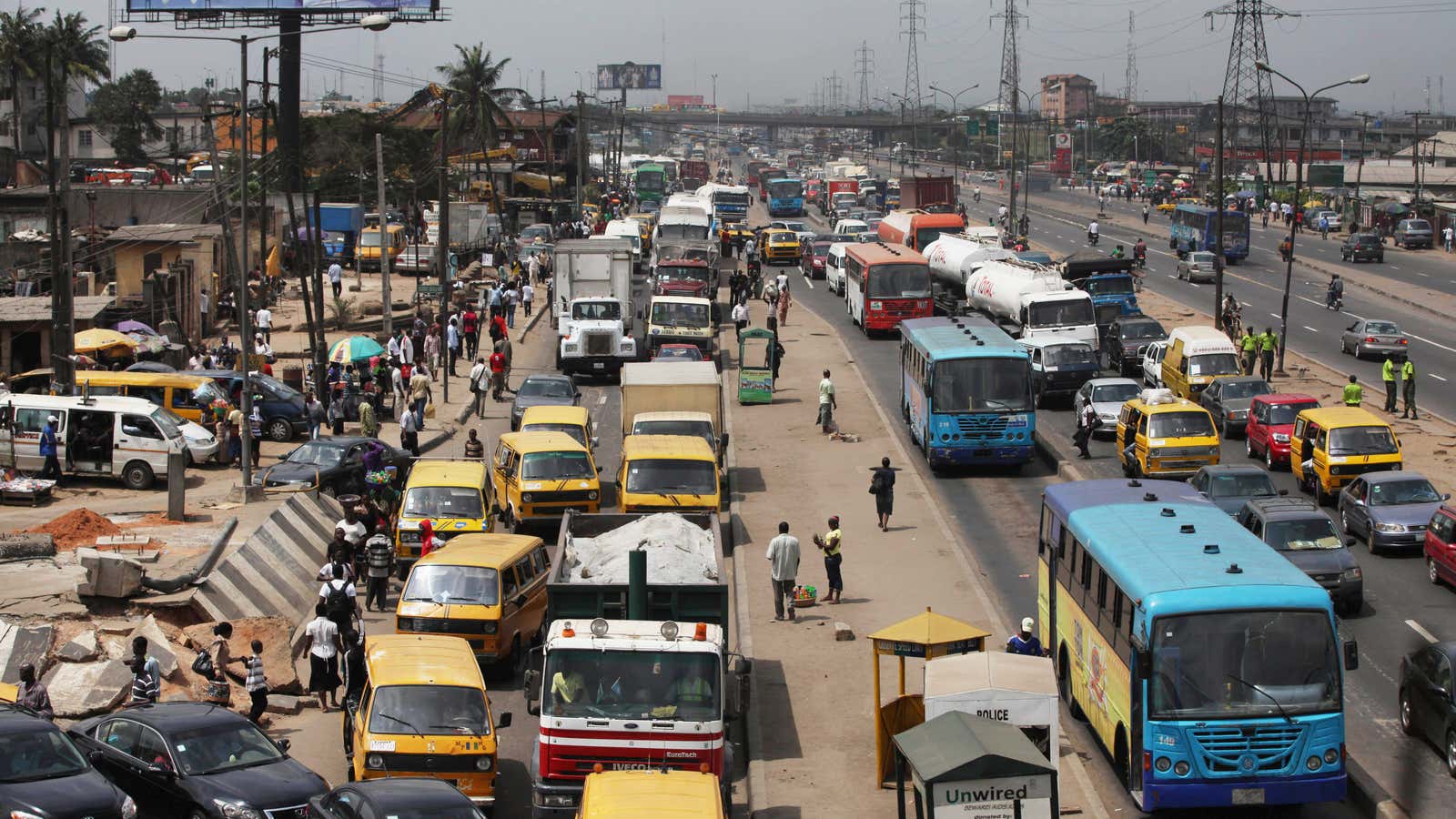Swiss commodity companies are taking crude oil from African countries, turning it into cheap diesel with toxin levels deemed illegal in Europe, and selling it back to those countries, according a report by the Swiss NGO Public Eye.
Companies like Vitol, Trafigura, and Addax & Oryx “ruthlessly exploit weak regulatory standards and make the local urban populations pay with their health,” the report, published today (Sept. 15), concludes.
After a three-year long investigation, Public Eye found a network of refiners, oil majors, traders, storage owners, and more support the production of “African quality” fuels: diesel with sulphur levels that are much higher than European limits.
Researchers took samples from gas stations in eight African countries and found that in more than two-thirds of samples, sulphur levels were 150 times higher than the European limit of 10 parts per million (ppm).
This fuel goes into the expanding car fleets of fast-growing cities like Lagos, adding to air pollution. (Sulphur contributes to fine particulate matter in the air and also damages emission control technology in newer cars.) African cities are already some of the world’s most polluted, surpassing notoriously smoggy metropolises like Beijing and New Delhi.
This is especially the case in West Africa where half of all imported fuel comes from the “ARA zone”—Amsterdam, Rotterdam, and Antwerp—where Swiss trading firms own refineries and storage facilities that produce gasoline blendstocks.
“Many West African countries that export high grade crude oil to Europe receive toxic low quality fuel in return,” the report says.
Still, these companies are not acting illegally. Africa has some of the world’s weakest fuel quality standards, with sulphur limits of 2,000 ppm on average, almost 200 times the average limit in European counties.

Trafigura and Vitol have responded to the report by stressing that they have operated within the legal limits of these countries. Public Eye calls this a form of “regulatory arbitrage.”
